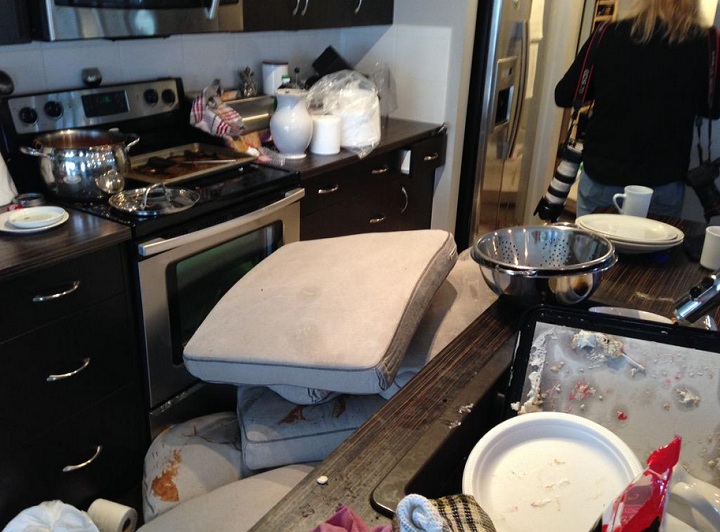OTTAWA – Canadians looking to make a few extra dollars this summer by renting out their home or cottage when they aren’t using them should call their insurance broker first or face the risk a claim may be denied if trouble arises.

“Traditional personal coverage wasn’t necessarily designed for commercial activity and people need to be aware of that and what their insurance coverage requires,” says Steve Kee, a spokesman for the Insurance Bureau of Canada.
“Each company may have its own practices and insurance claims. If something were to happen you may be denied if you say you use your home for just your home and then all of a sudden they find out it is on an Airbnb or something like that.”
READ MORE: Restoration continues on home trashed by Airbnb renters two months ago
Owners of a house in Calgary made headlines last month after their home was trashed by renters who used it for a massive party that resulted in more than $100,000 in damages.
In that case, Airbnb stepped up to pay for the damages that left the owners unable to live in their home while it was being cleaned and repaired.
However, like insurance policies, not all rental services are the same and if you’re thinking about listing your home you need to read the fine print of the service you use to understand what may and may not be protected.
WATCH: Airbnb contributing to rental shortage?
Jamie Martyn, president of Kennedy Insurance Brokers in North Bay, Ont., says coverage under your homeowner’s policy isn’t automatic and you need to check with your agent or broker.
If you’re renting your cottage, your policy may already allow that, but it might be a different story for your home, especially if you’re renting out your entire house and not just the spare bedroom.
“Some companies may not be comfortable with it and they may choose not to continue insuring you if you do that,” Martyn said. “Some may add an endorsement to the policy that says, ‘Yes, you can do this and we will charge an extra $200 a year,’ or whatever the premium is for that.”
READ MORE: Sites like Uber, AirBnB test reach of local bylaws
For its part, Airbnb recommends on its website that you check with your insurance company to understand your coverage.
- Posters promoting ‘Steal From Loblaws Day’ are circulating. How did we get here?
- Video shows Ontario police sharing Trudeau’s location with protester, investigation launched
- Canadian food banks are on the brink: ‘This is not a sustainable situation’
- Solar eclipse eye damage: More than 160 cases reported in Ontario, Quebec
In the U.S., the company has its Host Protection Insurance, but the program doesn’t extend to Canada. Here, the company offers what it calls its Host Guarantee. Under the program the company promises reimbursement of up to C$1 million for damage, subject to certain limitations, but it is not an insurance policy.
Airbnb also suggests homeowners consider independent insurance to cover things like jewellery, art and other collectibles that are subject to limited protection under the host guarantee. You can also require a security deposit.
Kee says growth of what has been called the “shared economy” has exposed some gaps for the insurance industry, noting that similar concerns would apply to your auto insurance if you are using your car to drive people using ride-hailing apps.
But, he said, insurers are working to adjust their policies to accommodate the new demands from policyholders.
“I think this is just the beginning,” Kee said. “Industries always adapt. When you have a competitive marketplace people are always looking for ways to do that.”

Comments